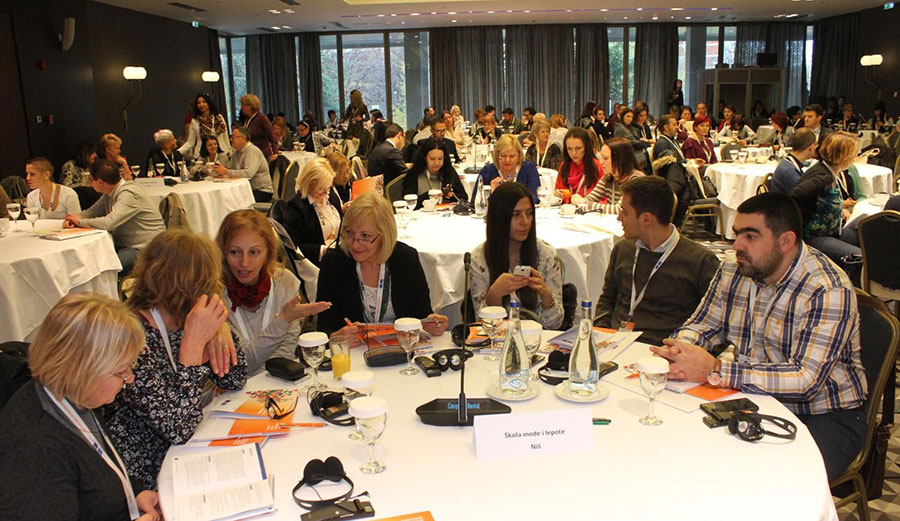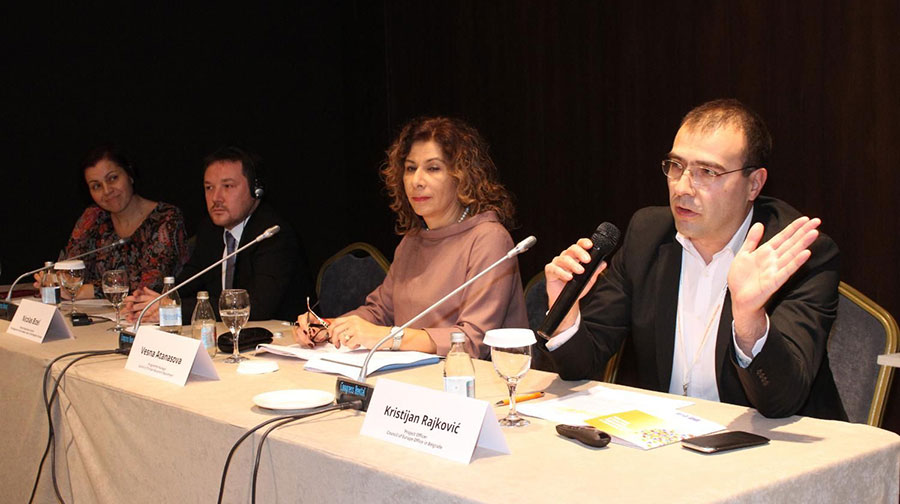Participants in a conference on democratic culture in schools, organised by the Council of Europe and EU Delegation to Serbia, said that a response to violence and discrimination must be swift and decisive in order to send a clear message that such behaviour is unacceptable and would not be tolerated.
“Promotion of tolerance and anti-discrimination should be put at the top of priorities, especially in the area of education as it is the foundation for bringing up responsible citizens,” said Nicolas Bizel of the EU Delegation to Serbia, opening a conference dedicated to the project “Promotion of democratic culture in schools.”
The two-year project is implemented by the Education Department of CoE in Serbia within the EU-CoE programme Horizontal Facility for the Western Balkans and Turkey.
According to Bizel, the project’s goal is to improve the quality of education by introducing democratic culture into Serbian education system.
 CoE Education Department Programme Manager Vesna Atanasova gave priority to skills over knowledge, saying that in addition to teaching children, the education system should allow them to develop certain skills, especially in the area of democratic culture, in order to have a successful career.
CoE Education Department Programme Manager Vesna Atanasova gave priority to skills over knowledge, saying that in addition to teaching children, the education system should allow them to develop certain skills, especially in the area of democratic culture, in order to have a successful career.
“When they grow up and become successful, it will not suffice for them to be good managers, businesspeople or politicians. What matters is to acquire values and skills of empathy, tolerance, understanding and integrity,” Atanasova said.
“Schools in Serbia do not teach democratic culture. However, democratic culture can cross cut through any school subject and any initiative or project of that sort are valuable as they ensure not only the quality of teachers’ work, but also the quality of education children carry with them once they complete their education,” said Anamarija Vicek, State Secretary with the Ministry of Education.
The goal of the project is to promote democratic culture in education in Serbia through application of anti-discrimination approach and raising awareness about inclusion, discrimination and violence in schools among teachers, pupils and local communities.




